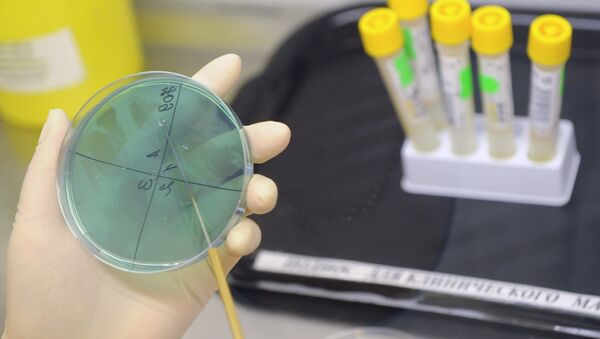MOSCOW, May 15 (RIA Novosti) - A team of scientists say they have developed a new drug that could potentially save the lives of those exposed to high levels of radiation, such as in a nuclear accident, according to the journal Science Translational Medicine.
In a new study, researchers at Stanford University tested a class of small molecule drugs, known as PHD inhibitors, on mice exposed to toxic amounts of radiation and the drugs protected the animals from radiation-induced gastrointestinal syndrome, which usually leads to death within two weeks.
"What's really exciting about this work is that not only have they found this countermeasure to mitigate radiation-induced [damage], but the fact that it works in a time window of 24 hours after exposure," said radiation oncologist David Kirsch of Duke University Medical Center in Durham, North Carolina.
The team turned to a new compound called DMOG, known to block the PHD proteins and already in clinical trials to treat chronic anemia. Animals that received a dose of DMOG even 24 hours after radiation exposure, survived longer than usual and two-thirds of them were still alive 60 days after exposure.
Lead researcher Amato Giaccia said radiation is so poisonous because it irreversibly damages cell DNA, leading to cell death. While radiation first strikes marrow and the brain, the cells most sensitive to radiation poisoning are located in the gastrointestinal (GI) tract.
"What we're accomplishing with DMOG is that we're modifying the physiology of the normal tissue to give it time to repair and regenerate," said Giaccia, a professor of radiation oncology at Stanford.



